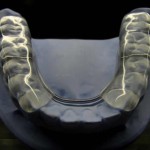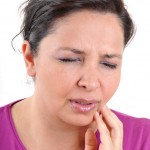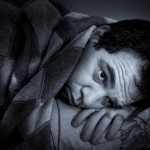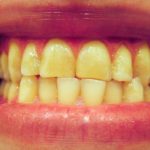
This review to assess the prevalence in bruxism in patients with Down Syndrome included 8 small studies. The studies were hetrogeneous with a pooled prevalence of 33% (95% CI: 22 to 45%).
[read the full story...]
This review to assess the prevalence in bruxism in patients with Down Syndrome included 8 small studies. The studies were hetrogeneous with a pooled prevalence of 33% (95% CI: 22 to 45%).
[read the full story...]
This review assessing the effect of disocclusion guidance on occlusal splints for sleep bruxism (SB) and temporomandibular disorders (TMD) included 15 studies. The included studies provided very low certainty evidence for most of the evaluated outcomes.
[read the full story...]
This review of the prevalence of tooth grinding and/or clenching in children and adolescents with neurodevelopmental disorders and other developmental anomalies included 77 studies from 2 countries. However a large proportion of the studies were at high risk of bias so the findings need to be interpreted with caution.
[read the full story...]
The review of the use of botulinum toxin type A injections in the management of primary bruxism in adults included 10 studies. Only 6 of the included studies were RCTs and the studies were generally small are very hetrogeneous so additional well designed and conducted RCTs are needed.
[read the full story...]
Sixteen studies were included in this review of oral appliances for sleep bruxism. The included studies were small and mainly short term and only 7 studies were RCTs . Although the availabel evidence suggests a short term benefit further high-quality studies of longer duration are needed.
[read the full story...]
This review of risk factors for sleep bruxism identified 9 studies involving a total of 12,454 patients. Strong associations were found for sleep bruxism, GERD and a gene related to serotonergic neurotransmission.
[read the full story...]
This review of diagnostic tools for sleep bruxism included 8 studies the majority being at high risk of bias. Portable diagnostic devices had best validity but quality of evidence was very-low to moderate.
[read the full story...]
Only 5 small low quality studies were included in this review of botulinum toxin (BoNT-A ) injections for sleep bruxism. 3 of the included studies were RCTs and while a potential benefit from use of BoNT-A treatment was suggested the findings should be treated very cautiously.
[read the full story...]
The review of sleep bruxism was only able to identify 12 small low quality RCTs covering a range of treatments. Most evidence was available for oral appliances but there is no sufficient evidence to state that the occlusal splint is effective for treating sleep bruxism.
[read the full story...]
Sleep bruxism (SB) is a sleep related disorder characterized by tooth grinding or jaw clenching during sleep, which is usually associated with sleep arousal. A wide range of treatments has been proposed including, relaxation exercises, behavioural approaches, dental splints and biofeedback. The aim of this review was to evaluate the efficacy of any biofeedback treatment [read the full story…]